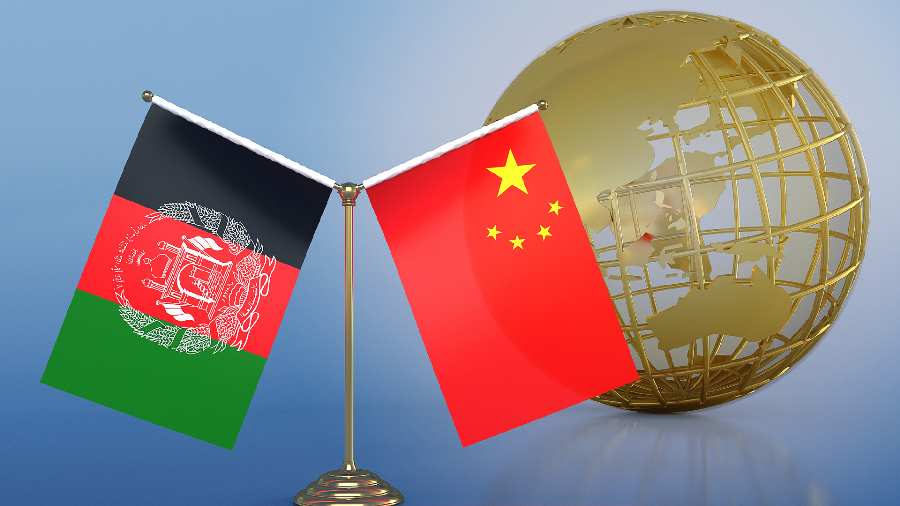Editor’s note: Wang Jin is a research fellow of Charhar Institute in China and an associate professor from Northwest University in China. The article reflects the author’s opinions and not necessarily the views of CGTN.
Chinese State Councilor and Foreign Minister Wang Yi recently visited and met with leaders and representatives of several Central Asian and Middle Eastern states, including representatives from Afghanistan’s Taliban. As Afghanistan’s neighbor, China can play a constructive role in facilitating peace and stability in Afghanistan.
The security situation in Afghanistan has worsened as U.S. troops continue to withdraw. The sensitive situation in Afghanistan can be linked to the U.S. withdrawal, which broke the balance of power between Afghan government forces and the Taliban. Over the past couple of months, the Taliban has made significant territorial gains and increased their claims of control to 85 percent of the country. Conflicts between the Taliban and government have immediately escalated in the wake of the withdrawal.
After the U.S. and its allies overthrew the Taliban in 2001, the U.S. became the major supporter of Afghanistan’s government. Washington not only provided military assistance to Afghan security forces to combat the Taliban in southern Afghanistan, but also launched direct attacks against Taliban leaders and secured areas of strategic importance. When the U.S. started to withdraw its military presence, especially without properly informing the Afghan government, the large power vacuum left by the U.S. triggered further chaos and instabilities within the country.
The U.S. withdrawal has also shaken the Afghan government’s political legitimacy. After 2001, Washington backed the Afghan government and rejected the Taliban’s legitimacy while the Taliban framed the Afghan government as the “U.S. puppet government” and insisted on its own legitimacy. When the U.S. reached a peace agreement with the Taliban, however, it undermined the Afghan government’s legitimacy. The most recent political dialogue between the Afghan government and Taliban organized by the U.S. in Doha in mid-July is deadlocked. The gap between the two sides is so wide that they could not reach an agreement over the political nature of the country, the arrangements of power and political structure. Without political agreement, conflicts will continue in Afghanistan.
Afghanistan’s domestic crisis has also started to spill over into neighboring states. Some Afghan government security forces have fled to Tajikistan, Iran and Pakistan, and the conflicts between the Taliban and Afghan security forces are being closely monitored by Afghanistan’s neighbors. Against this backdrop, China should adjust its policies to Afghanistan based on the latest developments.
First, China needs to maintain contact with both the Afghan government and the Taliban. Given the stalemate at the negotiating table, China must establish connections with both the Afghan government and Taliban to cultivate a conducive environment for dialogue with both sides. China is not the only power in contact with the Taliban. The Taliban attended meetings organized by Iran and Russia in recent weeks and has expresses its willingness to be in contact with any foreign government. The Taliban controls large areas in Afghanistan and might become a dominant power in the country; it also demonstrates an open attitude toward its neighbors.
Second, China needs to convey its wishes to the Taliban. China can encourage the political dialogue between the Afghan government and Taliban as part of efforts to pacify tensions in the country.
Third, China needs to remind the Taliban of its red lines. Extremism and terrorism remain a crucial issue for China’s national security. In the pre-2001 Taliban-dominated Afghanistan, extremists and terrorists took refuge in Afghanistan and even launched attacks against civilians in China. China needs to make sure that no matter which group is in power in Afghanistan, they need to understand China’s concerns and distance themselves from terrorist groups, especially the Eastern Turkestan Islamic Movement.
China’s attitude toward Afghanistan is clear. China will continue speaking up for Afghanistan’s independence and territorial integrity based on the principle of “Afghan owned, Afghan led,” be a responsible neighbor and friend to the Afghan people and play a constructive role in facilitating peace and stability in Afghanistan.













